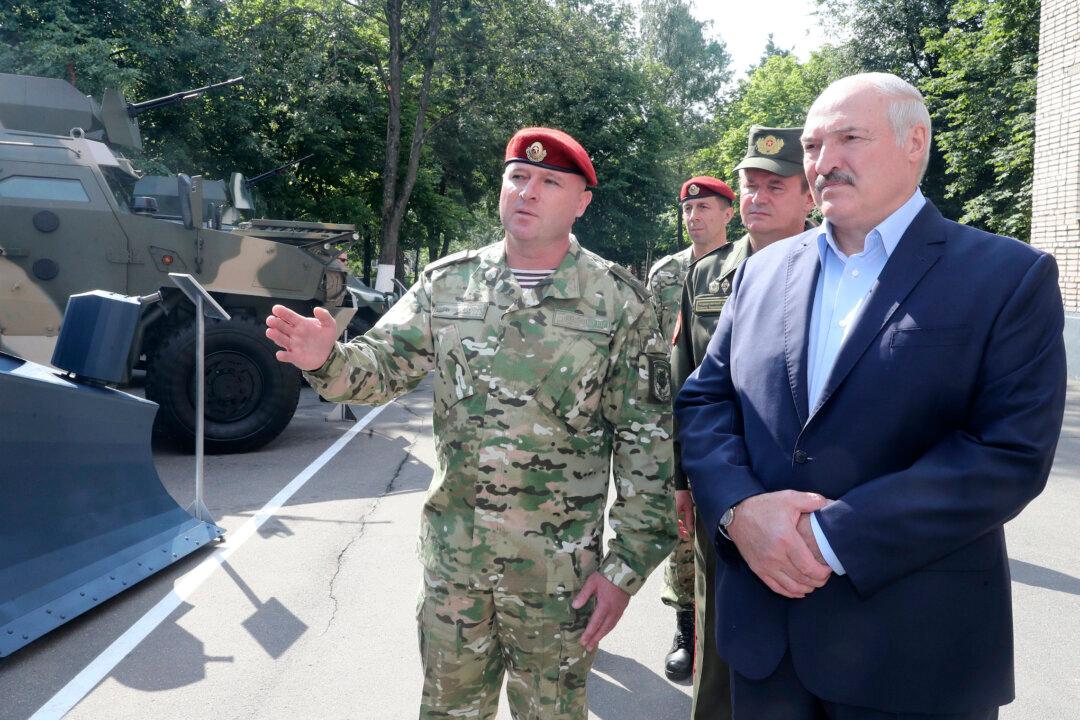MINSK, Belarus—Belarusian authorities said Wednesday they have detained dozens of Russian private military contractors days before Belarus’ presidential vote, a sign of escalating tensions between the two neighbors.
Belarus’ authoritarian President Alexander Lukashenko, who is seeking a sixth term in office in the Aug. 9 vote, has repeatedly accused Russia of trying to force Belarus to abandon its post-Soviet independence. Throughout his 26-year rule, the 65-year-old Lukashenko has relied on Russian subsidies and political support but has fiercely resisted Moscow’s efforts to gain control over Belarus’ economic assets.





